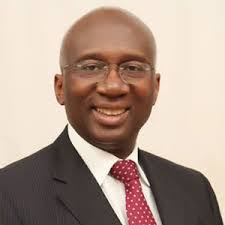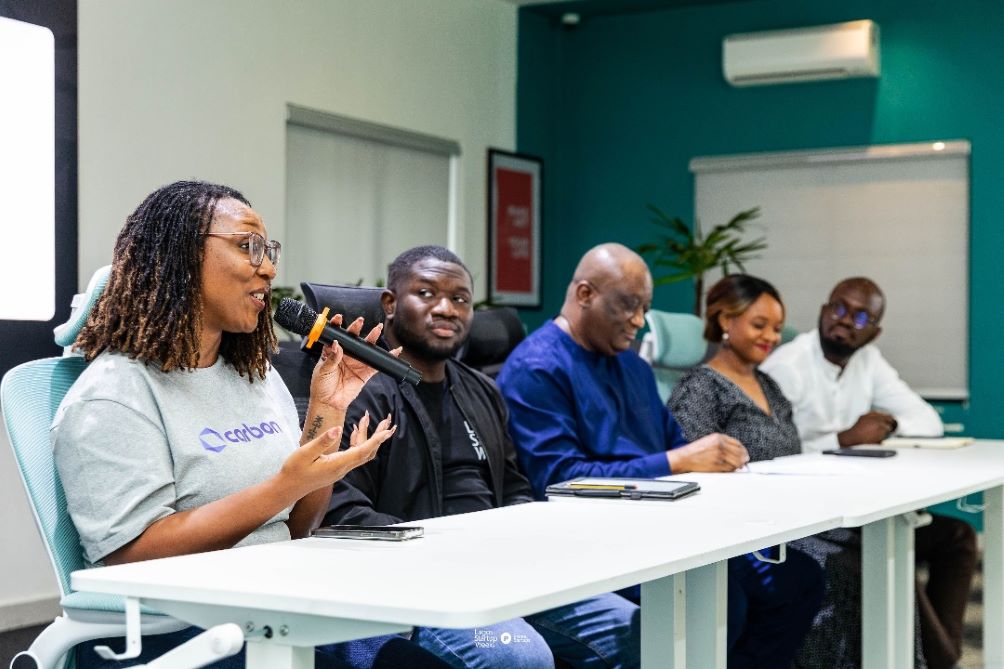By Ogunojuwo MoniJesu
Board Chairman of MTN Nigeria Communications PLC, Ernest Ndukwe, has called for increased investment in telecom infrastructure to position Nigeria as a competitive player in the Fourth Industrial Revolution (4thIR).
He gave the advice at the 22nd Annual Lecture and International Leadership symposium of the Centre for Values in Leadership in Lagos at the weekend.
Speaking as the Keynote Speaker at the event, with the theme “Creating a Competitive Edge in the 4th Industrial Revolution for Telecommunication Infrastructure in Nigeria,” he stressed the urgent need for high-speed internet expansion and regulatory policies that attract investment.
He noted that while the telecom sector has made progress, Nigeria still lags in broadband penetration.
According to him, the country has only achieved about 50per cent installed capacity, leaving many urban, semi-urban, and rural areas without access to fast and reliable internet.
He warned that without substantial improvements, Nigeria risked being left behind in the global digital economy.
Ndukwe urged policymakers to take a cue from global tech leaders such as the United States and China, where strategic government policies fueled rapid digital growth.
He emphasized that a business-friendly regulatory environment is essential for attracting investment in fiber-optic networks and high-speed connectivity, which are crucial for automation, artificial intelligence (AI) and other emerging technologies.
Beyond infrastructure, Ndukwe highlighted digital literacy as a key factor in Nigeria’s digital transformation.
He cautioned that digital illiteracy is becoming as limiting as traditional illiteracy, calling for the integration of technology education at all levels.
He also emphasized the need for Nigeria to move beyond being a consumer of technology to actively developing homegrown solutions.
He further expressed concern over policies at subnational and local government levels, where he noted that some authorities impose excessive levies on telecom operators instead of supporting the expansion of critical infrastructure.
He urged a shift in mindset, stressing that ICT should be recognized as fundamental to national development.
Ndukwe acknowledged government efforts to improve education access but noted that the high number of out-of-school children remains a challenge. He stressed that without widespread education and digital training, Nigeria’s workforce will struggle to compete in the Fourth Industrial Revolution.
Also speaking on the occasion, the Chief Operating Officer, Geoplex, Akintunde Fadare emphasized the importance of telecom investment.
“As an electrical engineer with a passion for telecoms, I see this as a call to action. There are enormous gaps in the sector, but also numerous opportunities for investment. Telecom contributes 20per cent to Nigeria’s GDP (gross domestic product) which is no small figure,” he said.
He highlighted that broadband penetration in Nigeria stands at just 42per cent, leaving a significant market open for investors. However, he stressed that without an enabling environment and favorable policies, attracting foreign and local investments would remain a challenge.
“This kind of forum allows us to send a clear message to policymakers: we need the right legislation to encourage investment. The telecom sector has the potential to transform not just Nigeria but the entire African continent,” he stated.
He also noted that Nigeria’s large population presents an opportunity to develop a skilled workforce that could serve both local and international markets.
“If we invest in training Nigerian youths in telecommunications, we can not only develop our country but also export talent to the global market. The language of telecom is the same everywhere—whether in the U.S., Canada, or Europe,” he explained.
He further stressed the importance of digital connectivity in unlocking remote job opportunities for Nigerians.
“There are countless remote job opportunities globally, but many Nigerian youths cannot compete because they lack reliable internet access. Imagine being able to work for a U.S. company remotely without leaving Nigeria—this is possible if we improve our broadband infrastructure,” he added.






